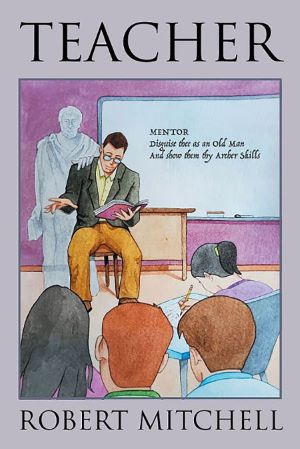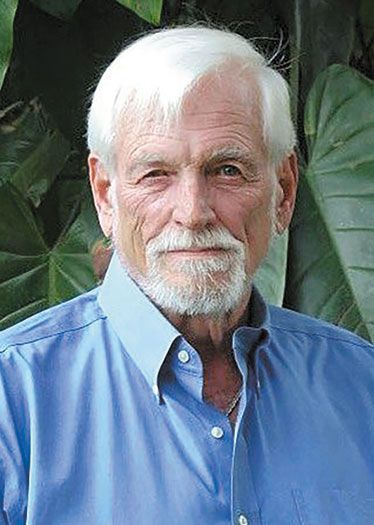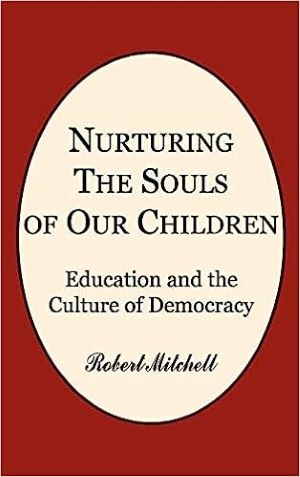Latest Book
Teacher:
Seeking the Vocational Archetype


Robert Mitchell retired after 27 years as a secondary classroom teacher in multiple subjects in both public and private schools. He now writes, lectures, and gives workshops on education, child development, and democracy. This book precedes a second book on the K-12 curriculum.
Robert Mitchell
Author, Teacher
What Readers Are Saying
Reviewed in the United States on March 28, 2023
The title of Robert Mitchell’s book, Teacher, says it all—yet that one word also hides an enigma—what is a teacher? Not a detached theoretician nor an ideologue of any ilk, Mitchell enters the fray unflinchingly, offering this memoir/essay about his quest for the vocational archetype. He takes up carefully and concretely the problems and possibilities that arise with questions of educational philosophy spanning personality development to the premises of civilization itself.
Mitchell’s radical proposition is that each child, each student, be regarded as a soul-centered human being. That perspective defines the vocational archetype of the teacher that genuinely successful teachers embody and enact it in their classrooms. In a culture where students are broadly seen as economic automata, it is impossible to formulate educational policies based on soulfulness, especially while the “objectives of standardization” become increasingly rigid with commodified outcomes. By confronting such politicized and hyper-rationalized forces with careful scholarship, Mitchell addresses the pivotal questions: “Who, exactly, does the teacher work for?” and “What are the aims, or purposes, of education?” In this context, he engages not only matters of the public trust but also those of the sacred trust.
Among his conclusions:
The educational problem that is emerging in the twenty-first century is to realize that secular humanism is an unresolvable contradiction—secular means nonspiritual, but humanism has an inherent spirituality that transcends all religions, and a common culture must have a shared spiritual foundation. Teaching ‘spiritual’ humanism in a cultural, rather than religious, context leads to the humanist concept of the sanctity of the individual that manifests as the character of the soul. [79]
Robert Mitchell advances integrative insights with profound respect for those who take on the archetypal vocation of a teacher in America. Anyone who reads this masterwork may sense with Mitchell the seriousness and urgency of educational responsibility—as well as the possibilities for humankind if we teach to cultivate soulfulness in ourselves and our children. It can be done.
Mitchell’s radical proposition is that each child, each student, be regarded as a soul-centered human being. That perspective defines the vocational archetype of the teacher that genuinely successful teachers embody and enact it in their classrooms. In a culture where students are broadly seen as economic automata, it is impossible to formulate educational policies based on soulfulness, especially while the “objectives of standardization” become increasingly rigid with commodified outcomes. By confronting such politicized and hyper-rationalized forces with careful scholarship, Mitchell addresses the pivotal questions: “Who, exactly, does the teacher work for?” and “What are the aims, or purposes, of education?” In this context, he engages not only matters of the public trust but also those of the sacred trust.
Among his conclusions:
The educational problem that is emerging in the twenty-first century is to realize that secular humanism is an unresolvable contradiction—secular means nonspiritual, but humanism has an inherent spirituality that transcends all religions, and a common culture must have a shared spiritual foundation. Teaching ‘spiritual’ humanism in a cultural, rather than religious, context leads to the humanist concept of the sanctity of the individual that manifests as the character of the soul. [79]
Robert Mitchell advances integrative insights with profound respect for those who take on the archetypal vocation of a teacher in America. Anyone who reads this masterwork may sense with Mitchell the seriousness and urgency of educational responsibility—as well as the possibilities for humankind if we teach to cultivate soulfulness in ourselves and our children. It can be done.
John Dotson
Review on Teacher: Seeking the Vocational Archetype
Reviewed in the United States on April 6, 2023
Robert Mitchell’s new and exciting book Teacher: Seeking the Vocational Archetype is a gem. This is a subject that has been close to my heart for over 40 years, when the archetype of the teacher was first evoked in my own psyche as a teaching assistant at the University of California at Santa Cruz. This book is a memoir of Mr. Mitchell’s personal and professional process of seeking and awakening the teacher archetype during 15 years of his teaching career. He reveals his mature reflections on his own psychological process of individuation in his chosen field of profession: education. As a post-Jungian scholar, archetypal theory provides the structuring principle around which the entire volume turns in seven masterful chapters leading up to Chapter 7: “Finding the Vocational Archetype of the Teacher.” First he tells us how to seek the archetype, then how to find it, and give it voice. Mr. Mitchell elucidates for us how he had to find and defend his philosophy of education to give strength to the archetype of the teacher within his own personality in front of his students, parents, and administration, and how the autonomy that he developed over time gradually gave voice to the archetype within him. This is the true meaning of vocation: vocare, to be called. The calling to become a good teacher comes both from the collective psyche and society by means of evocation.
The teacher archetype exists in a unitary reality and it has “two feet,” one in the world and one in the hidden depths of one’s own personality and it needs to be evoked. Robert Mitchell carefully explains all of this in a pragmatic, down to earth way, with personal stories eloquently interwoven throughout the book that provides empirical validity for his hypothesis. In this sense, the book is exemplary: a model for teachers who are actively seeking the archetype of the teacher to help them become truer to their own callings and how you might find your own authentic inner voice from which to speak as authorities on education at whatever grade level you might be teaching. From the vantage point of his retirement now and assumption of a new archetype of being an internationally recognized scholar and prolific writer, Robert embodies today not only the teacher archetype but the archetype of a psychosocially and psychologically attuned mentor to teachers, a seasoned man who has successfully shown how the archetype can have a reciprocal effect on childhood education, teaching, and cultural evolution by supporting the psychological and democratic ideals necessary for enriching the souls of our children in the United States and the world’s children generally.
The teacher archetype exists in a unitary reality and it has “two feet,” one in the world and one in the hidden depths of one’s own personality and it needs to be evoked. Robert Mitchell carefully explains all of this in a pragmatic, down to earth way, with personal stories eloquently interwoven throughout the book that provides empirical validity for his hypothesis. In this sense, the book is exemplary: a model for teachers who are actively seeking the archetype of the teacher to help them become truer to their own callings and how you might find your own authentic inner voice from which to speak as authorities on education at whatever grade level you might be teaching. From the vantage point of his retirement now and assumption of a new archetype of being an internationally recognized scholar and prolific writer, Robert embodies today not only the teacher archetype but the archetype of a psychosocially and psychologically attuned mentor to teachers, a seasoned man who has successfully shown how the archetype can have a reciprocal effect on childhood education, teaching, and cultural evolution by supporting the psychological and democratic ideals necessary for enriching the souls of our children in the United States and the world’s children generally.
Steven Herrmann, Author of Spiritual Democracy: The Wisdom of Early American Visionaries for the Journey Forward
Review on Teacher: Seeking the Vocational Archetype
Reviewed in the United States on March 30, 2023
Robert Mitchell has written a unique and necessary pedagogical book in the current era of fragmented souls in our communities and in our schools. While Mitchell states that seeking the vocational archetype, “a calling,” in the teacher is not a new concept, it remains a neglected conversation in pedagogy. In this rich thought-provoking book, Mitchell reminds all teachers and educational stakeholders that it is not enough to focus on objectives of standardization but what is of utmost importance is a cultivation of “teachers of the mind and nurturers of the soul.”
As a current elementary school teacher, having been in the classroom for nearly 30 years, it was inspiring and refreshing to read such a reflective account of Mitchell’s process as a pedagogical being. Teachers in K-12 grades, whether at the beginning or end of their careers, will benefit from exploring Mitchell’s journey as he elucidates the significance of the archetypal relationship that exists within the soul space shared between teachers and students in the classroom.
Petra S. Otero, 4th Grade Teacher, Ed. D.
As a current elementary school teacher, having been in the classroom for nearly 30 years, it was inspiring and refreshing to read such a reflective account of Mitchell’s process as a pedagogical being. Teachers in K-12 grades, whether at the beginning or end of their careers, will benefit from exploring Mitchell’s journey as he elucidates the significance of the archetypal relationship that exists within the soul space shared between teachers and students in the classroom.
Petra S. Otero, 4th Grade Teacher, Ed. D.
Petra S. Otero, 4th Grade Teacher, Ed. D.
Review on Teacher: Seeking the Vocational Archetype


